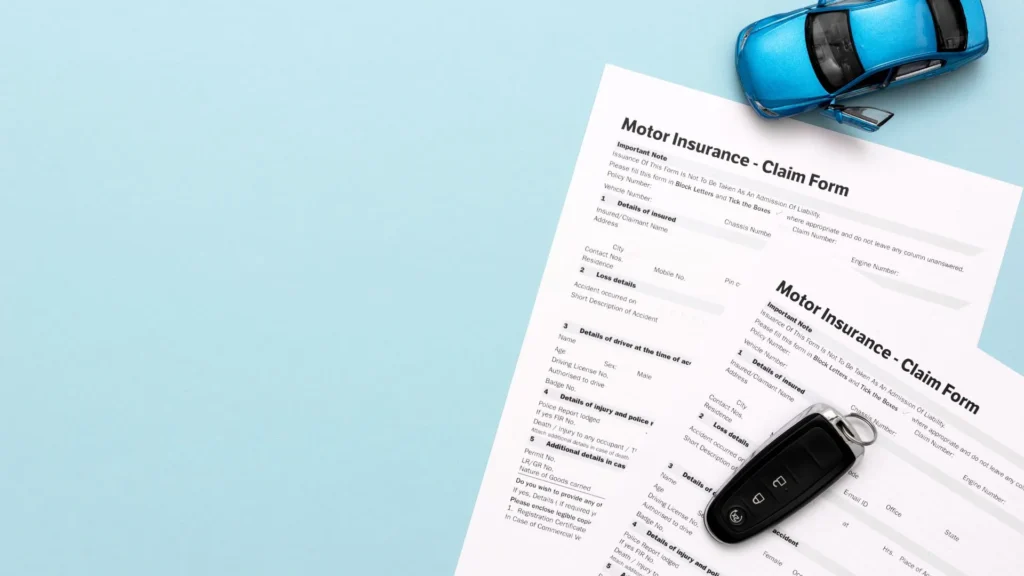Dealing with car insurance paperwork is bad enough without worrying about your mailing address. But can you even use a PO Box for your car insurance policy? It’s a tricky question with no one-size-fits-all answer. Some insurers allow it, while others want a physical street address on file. Navigating the do’s and don’ts of using a PO Box for car insurance is its own headache entirely. In this blog, we will help you clear this confusion and clarify whether you can your PO Box for your auto insurance policy. Let’s read on!
Can You Use a PO Box For Car Insurance?
Using a PO Box for your car insurance policy is a gray area; some companies allow it, while others strictly require a physical street address. Insurers want to accurately rate your policy based on the garaging location of your vehicle. A PO Box doesn’t give them that intel. However, some carriers will make an exception if you legitimately receive mail at a PO Box and your car is secured elsewhere, like at your home address. Just be upfront about the situation and get explicit approval first. If they catch on, trying to fudge a PO Box as your residence could be grounds for claim denial or policy cancellation. When in doubt, a street address is usually the safest policy.
Understanding the Role of Your Address in Car Insurance
Your address plays a crucial role in car insurance premiums. Car insurance rates depend on your zip code! Insurers consider things like crime, traffic, and even weather. Living in a high-claim area means higher premiums. On the other hand, living in a low-risk area might lower the premiums. Accurate address information ensures you receive appropriate coverage and fair pricing. Therefore, it is crucial to be honest about where you park your car to avoid trouble later.
Why Does Car Insurance Require a Physical Address?
Car insurance companies require a physical address for a few key reasons. First, they need to accurately pinpoint your vehicle’s primary garaging location to properly assess risk factors like crime rates, traffic patterns, and weather hazards specific to that area. A PO box just doesn’t provide enough detail. Plus, having an actual residence on file helps verify you’re legit and not some fly-by-night trying to scam the system.
How to Get Car Insurance Without a Permanent Address?
Skip the PO box for car insurance! It might seem handy for mail, but it can cause headaches. Important documents might get lost, verifying your residency can be tricky, and some states link coverage to your car’s registration address. Using your real address ensures clear communication, avoids delays, and keeps your coverage squeaky clean.
Pros of Using a PO Box for Car Insurance
Using a PO Box for your car insurance can offer advantages like privacy and consistency. With a physical address, your insurer has data on crime rates and other risk factors in your neighborhood. A PO Box keeps that info private. And if you’re frequently moving, a PO Box provides a stable mailing address rather than constantly updating your policy. Just be upfront with your insurer; some will allow PO Boxes while others require a residence on file.
Cons of Using a PO Box for Car Insurance
Using a PO box for car insurance can backfire. Important updates or claim info might get lost, verifying your address can be a hassle, and some states link coverage to your car’s registration address. Skip the PO box drama and use your real address for smooth sailing!
Garaging Address vs. Mailing Address: What’s the Difference?
Here’s the quick scoop:
Mailing Address: This is where you receive your bills and car insurance updates. It can be your home address or a PO box.
Garaging Address: This is where you park your car most nights. It’s important for insurance as it reflects the car’s “home base” and can affect your rates. Think of it as your car’s own little zip code!
How to Use a PO Box with Your Car Insurance Company?
While car insurance companies typically won’t allow a PO box as your main address, you can still use one for your mailing address. Using a PO Box for car insurance requires a few key steps:
- Inform your insurance provider that you want to use a PO Box as your mailing address. Make sure that the PO Box is set up and active.
- When updating your address, provide both your PO Box and your physical residence address. The insurer will require the address for accurate risk assessment.
- Ensure all correspondence, including policy documents and renewal notices, is directed to your PO Box.
- Keep your insurance provider informed of any address changes to receive important documents.
Conclusion
While you can use a PO Box for car insurance, it often requires careful handling. Insurance companies usually require your physical address for risk assessment. Navigating car insurance across state lines can feel like a confusing maze, but with a little planning, you can find the most efficient and affordable coverage. Explore all your options and don’t be afraid to chat with your insurance company – they’re there to help you confidently hit the road! You can use Beem to compare the best auto insurance providers in the country to get the best deals as per your vehicle’s needs. You can unlock up to 40% off on Car Insurance by Driving Safely.
FAQs
Does car insurance become invalid with an incorrect address?
No, having the wrong address on your car insurance doesn’t automatically make it invalid. But you could run into some issues down the line. For example, if you need to make a claim, the insurance company might have trouble verifying where you live and could deny it or give you a hard time. It’s best to keep that address updated.
Can you use a PO box to register for a car in California?
No, California wants your actual home address to register your car, not a PO box. They need to know the real physical location of where you’ll be keeping the vehicle. Using a PO box address won’t fly; they’ll make you put down a street address.
Can you register a car to a PO box in NY?
You cannot register a car in New York to a P.O. Box address. Vehicle registration typically requires a physical address where the vehicle is primarily kept or garaged. This ensures accurate documentation and facilitates communication regarding the vehicle, such as registration renewals, parking violations, and other official notices. Using a P.O. Box address for vehicle registration violates state regulations.




























